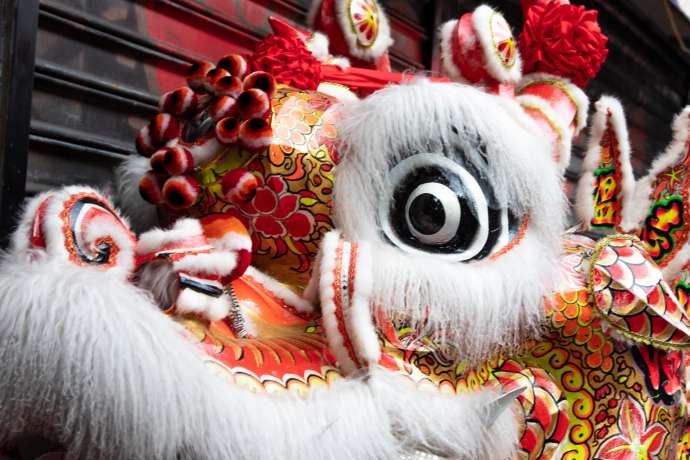Časoris is an online newspaper aimed at children. Each week we’ll take an article and post it here as a Slovene-English dual text.
Prihaja leto bivola
The year of the Ox is coming
Written by Romana Dobnikar Šeruga, translated by JL Flanner & G Translate
Vhod v veleposlaništvo Ljudske republike Kitajske ob Ljubljanici že nekaj dni krasita dve čudoviti rdeči lanterni. Znak, da se bliža veliko praznovanje. V petek se začne kitajsko novo leto!
The entrance to the Embassy of the People's Republic of China along the Ljubljanica has been adorned with two beautiful red lanterns for several days now. A sign that a big celebration is approaching. Chinese New Year begins on Friday!
Za 1,4 milijarde prebivalcev Kitajske in za Kitajce, ki živijo po svetu, je to najpomembnejši praznik v letu. Tudi za približno tisoč Kitajcev, ki živijo v Sloveniji.
For the 1.4 billion people of China and for the Chinese living around the world, this is the most important holiday of the year. Also for about a thousand Chinese people living in Slovenia.
Na Kitajskem običajno uporabljajo isti koledar kot mi, a novo leto določajo po luninem koledarju. Zato je lahko kateri koli dan med 21. januarjem in 20. februarjem.
In China, they usually use the same calendar as us, but the New Year is determined by the lunar calendar. Therefore, it can be any day between January 21st and February 20th.
Vsako leto ima svoje živalsko znamenje. Jutri se konča leto podgane, v petek pa začne leto bivola!
Every year has its own animal sign. Tomorrow is the year of the rat, and Friday is the year of the ox!
Praznovanje novega leta je hkrati tudi praznik pomladi. Traja dva tedna in se zaključi s praznikom lantern.
Celebrating the New Year is also a spring holiday. It lasts for two weeks and ends with the Lantern Festival.
Kitajci si vzamejo veliko časa za praznovanje v družinskem krogu. Zaposleni dobijo vsaj sedem dni dopusta, učenci pa kar mesec dni počitnic. Revnejši Kitajci, ki delajo daleč od doma, obiščejo svoje otroke, zakonce in družinske člane samo za vsako novo leto.
The Chinese take a lot of time to celebrate in with their families. Employees get at least seven days off, and students get a month off. Poorer Chinese who work far from home visit their children, spouses and family members just for each New Year.
Praznujejo več dni, obiščejo sorodnike, odidejo v tempelj, občudujejo ulične povorke in ognjemete ter delajo strašen hrup s petardami.
They celebrate for several days, visit relatives, go to the temple, admire street processions and fireworks, and make a terrifying noise with firecrackers.
Veliko družin pa za novo leto gleda priljubljeno televizijsko novoletno oddajo. V njej nastopajo najboljši kitajski pevci, plesalci in akrobati.
Many families, however, watch the popular New Year's TV show for the New Year. It features the best Chinese singers, dancers and acrobats.
Pred novoletnimi prazniki ljudi zajame huda potovalna mrzlica. V mesecu dni se jih na pot odpravi vsaj 400 milijonov.
Before the New Year holidays, people are gripped by a severe travel fever. At least 400 million of them set off during the month.
Toda letos na avtobusih, vlakih in letalih ni pretirane gneče. Oblasti želijo preprečiti nov izbruh covida-19. Zato so uvedle različne ukrepe, poroča dopisnik BBC-ja iz Šanghaja. Kdor želi na potovanje, se mora denimo testirati ob odhodu od doma, ob prihodu na cilj potovanja, ob vrnitvi domov pa spet na točki odhoda in točki vrnitve.
But this year, buses, trains and planes are not overcrowded. The authorities want to prevent a new outbreak of covid-19. That is why they have introduced various measures, reports the BBC correspondent from Shanghai. For example, those who want to travel must be tested when leaving home, arriving at their destination, and again when going home at both the points of departure and return.
Read more stories and improve your Slovene at Časoris, while all our dual texts can be found here.







